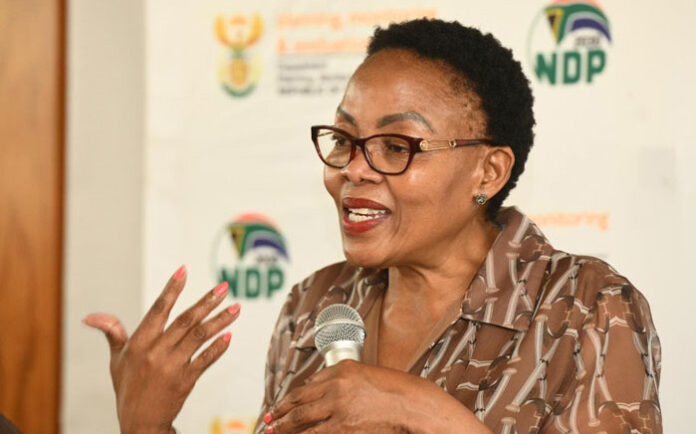In yet another case of impersonation on social media, Deputy Minister Pinky Kekana of the Department of Planning, Monitoring and Evaluation has become a victim of a fake social media account.
This time, the impersonation took place on TikTok, shortly after the discovery of fake Facebook accounts claiming to belong to Minister Stella Tembisile Ndabeni-Abrahams of the Department of Small Business Development.
The Department of Planning, Monitoring and Evaluation has issued a warning to the public, urging them not to engage with these fake accounts. Lawrence Ngoveni, the department’s spokesperson, revealed that a TikTok account named “Pinky_Kekana3” has been fraudulently using the deputy minister’s name and photos.
[ South Africa Grants Electricity Minister Powers To Address Power Outages ]
It is important to note that Deputy Minister Pinky Kekana does not have a TikTok account, and the department does not offer any educational trading programs related to making money.
The public and stakeholders are strongly advised to refrain from following or communicating with the TikTok account “Pinky_Kekana3” to avoid falling victim to unscrupulous fraudsters.
This incident follows a similar warning issued by the Department of Small Business Development, cautioning small business owners against being scammed and defrauded by opportunists who have created Facebook accounts under Minister Ndabeni-Abrahams’ name.
The department reiterates that neither the minister nor the department would ever request upfront fees from the public in exchange for accessing funding or business opportunities.
Impersonation and fraudulent activities on social media platforms have become increasingly common. Scammers and fraudsters take advantage of the trust placed in public figures to deceive unsuspecting individuals.
The public must remain vigilant and cautious when interacting with accounts claiming to belong to government officials or offering too-good-to-be-true opportunities.
To protect yourself from falling victim to such scams, it is advisable to verify the authenticity of social media accounts by cross-referencing information with official government websites or contacting the relevant departments directly.
Government officials and departments often have verified accounts on reputable social media platforms, which can be a reliable source of information.
Catch up with the latest news from The Times Post on WhatsApp by following our channel. Click here to join.















